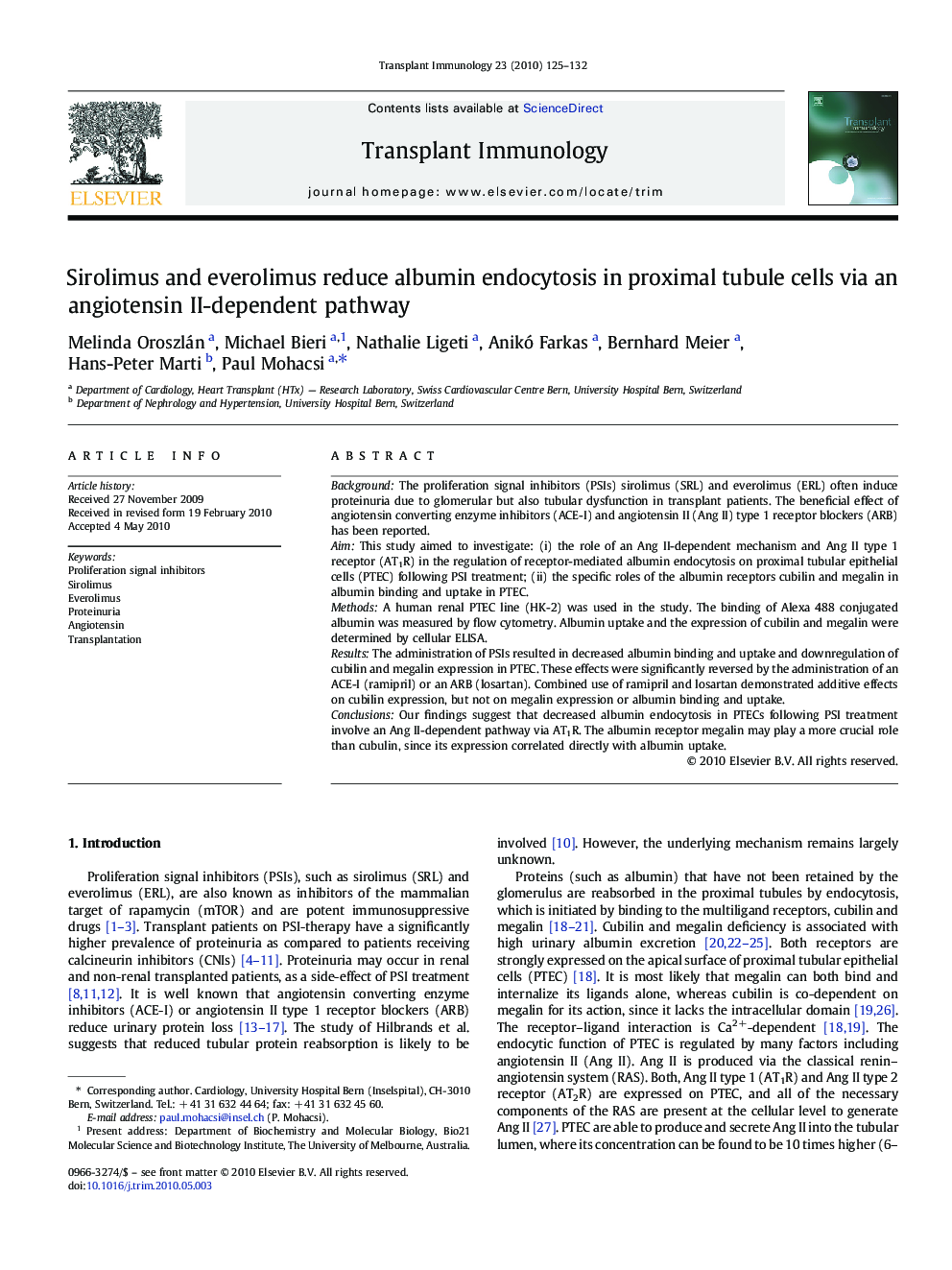| Article ID | Journal | Published Year | Pages | File Type |
|---|---|---|---|---|
| 3392318 | Transplant Immunology | 2010 | 8 Pages |
BackgroundThe proliferation signal inhibitors (PSIs) sirolimus (SRL) and everolimus (ERL) often induce proteinuria due to glomerular but also tubular dysfunction in transplant patients. The beneficial effect of angiotensin converting enzyme inhibitors (ACE-I) and angiotensin II (Ang II) type 1 receptor blockers (ARB) has been reported.AimThis study aimed to investigate: (i) the role of an Ang II-dependent mechanism and Ang II type 1 receptor (AT1R) in the regulation of receptor-mediated albumin endocytosis on proximal tubular epithelial cells (PTEC) following PSI treatment; (ii) the specific roles of the albumin receptors cubilin and megalin in albumin binding and uptake in PTEC.MethodsA human renal PTEC line (HK-2) was used in the study. The binding of Alexa 488 conjugated albumin was measured by flow cytometry. Albumin uptake and the expression of cubilin and megalin were determined by cellular ELISA.ResultsThe administration of PSIs resulted in decreased albumin binding and uptake and downregulation of cubilin and megalin expression in PTEC. These effects were significantly reversed by the administration of an ACE-I (ramipril) or an ARB (losartan). Combined use of ramipril and losartan demonstrated additive effects on cubilin expression, but not on megalin expression or albumin binding and uptake.ConclusionsOur findings suggest that decreased albumin endocytosis in PTECs following PSI treatment involve an Ang II-dependent pathway via AT1R. The albumin receptor megalin may play a more crucial role than cubulin, since its expression correlated directly with albumin uptake.
